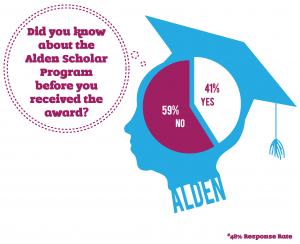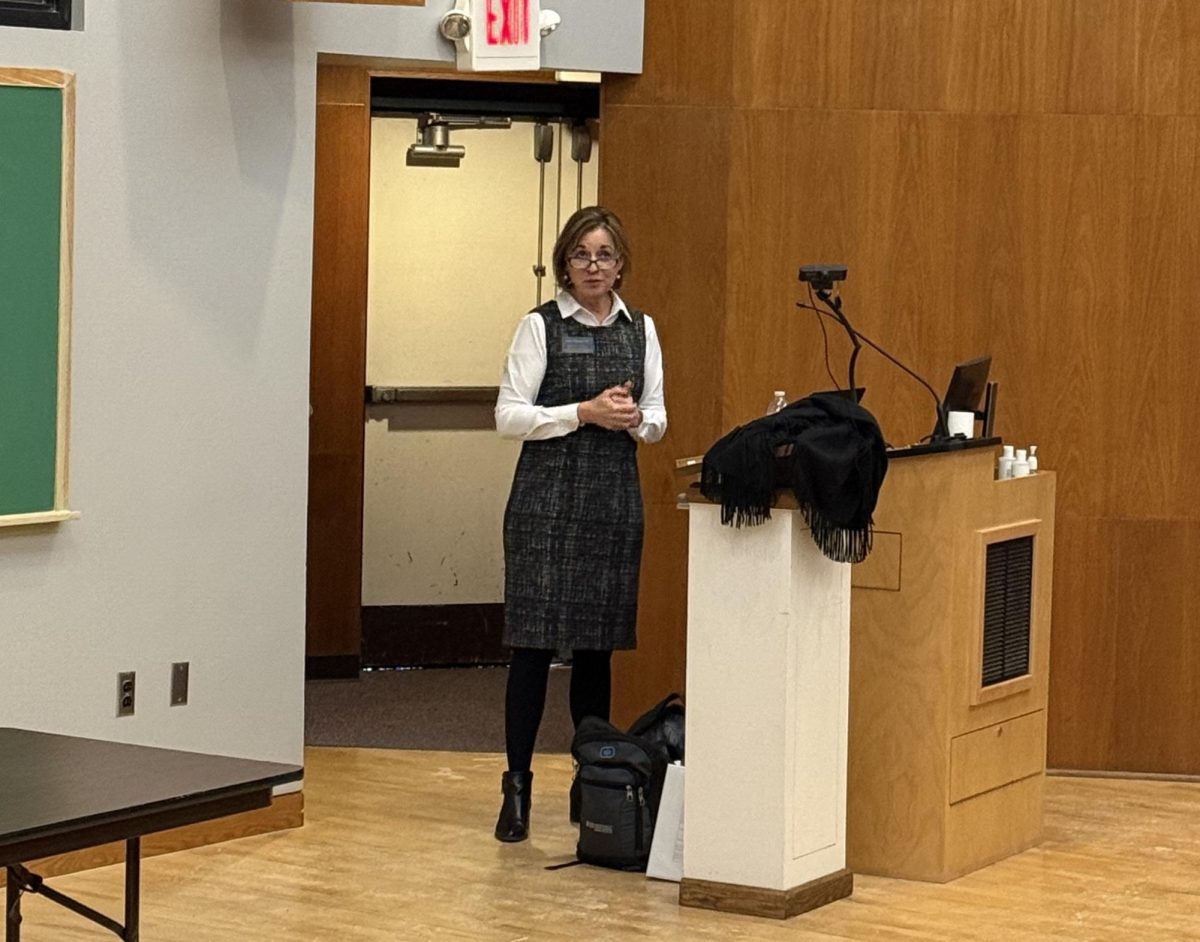News Editor
Nearly 60 percent of students who received an Alden Scholar award for the 2010-2011 academic year did not know what it was upon receiving it for the first time, according to a poll conducted by The Campus.
“I guess that’s an indication that we need to get the word out a little bit more and try to do something more with it because it is an academic honor,” said Dean of the College Linda DeMerrit, whose office helps distribute certificates for the awards.
Recipient Anna Good, ’13, didn’t think the award is taken seriously.
“I had no idea what it was, and while it’s nice to have that piece of paper, if it does nothing for me, I don’t really care,” she said. “I don’t see what the point of it is except to tell you what you already knew: that you had a GPA above a certain amount.”
Students with a 3.2 grade point average over the course of the academic year qualified to be an Alden Scholar. Students with a 3.8 GPA qualified as Distinguished Alden Scholars.
The Alden Scholar program is Allegheny’s version of a Dean’s List, similar to Kenyon College’s Merit List.
Other schools in the Great Lakes Colleges Association have official Dean’s Lists.
Denison College’s honors students with GPAs of 3.7 or higher on their Dean’s List while Wooster’s minimum is 3.65.
A Dean’s List began at Allegheny in the 1930s as a list of students with B averages, the equivalent of a 3.0. Former President Lawrence Pelletier created the Alden Scholar program in 1958.
After receiving an Alden Scholar certificate, Sara Mitrano, ’13, still didn’t know what it meant to be an Alden Scholar.
“If you’re a first time Scholar, they should put in a little sheet of paper that explained what it was,” she said. “It lets students know the administration is aware of student achievements.”
On the other hand, Andrew Raker, ’12, thought a change in title would be a better solution.
“Considering that the award is only a piece of paper, one might just as well call the award the Dean’s List because that is essentially what the Alden Scholar award is,” he said.
Raker, who knew about the award before receiving it, recognized a more problematic situation.
“I think the bigger difficulty might be for people unfamiliar with the college, who don’t know who Timothy Alden was or what an Alden Scholar is,” he said. “Some employers may sense the distinction while others may just question what it is.”
The name Alden Scholar has never been addressed as a problem, DeMerrit said.
Upon creation of the program in 1958, winners were announced at a special ceremony, and later at a dinner, until this stopped in 1998.
DeMerrit and her secretary Samantha Stephens recalled that the banquet dinner was discontinued because of low attendance from students.
Approximately 600 students received both awards for the 2010-2011 year.
DeMerrit said the reinstatement of a banquet dinner has never come up.
Currently, the names are posted online and in the honors convocation and commencement ceremony programs.
Alden Scholars receive a certificate in the mail while Distinguished Alden Scholars receive the same certificate in addition to a letter and a book prize.
Although the title Distinguished Alden Scholars was used in their letter, the certificates for Alden and Distinguished Alden Scholars remained the same. The course catalogue does not indicate a difference between the two.
DeMerrit recognized this as a problem, and said the first step is to change the title on the certificates and in the course catalogue to Distinguished Alden Scholar instead of only Alden Scholar.
“It’s much more competitive,” she said.
Raker wanted even more recognition for the students who qualified for the Distinguished Alden Scholar award each year.
“I think there could be more emphasis placed on how difficult it is to pull off a 3.8 average,” Raker said.
Good felt that the announcement is downplayed.
“I think that if they want it to be a big deal, they should make a bigger deal about it,” she said. “I’ve never seen anything about Alden Scholars anywhere except for on the certificate.”
DeMerrit cited a reason for this: unlike other honors, students don’t have to submit an application.
“You’re going to get it if you meet the criteria,” DeMerrit said. “Since you don’t have to apply, it probably makes it below the radar screen, but you find out about it when you receive it.”







Steven Jones • Oct 7, 2011 at 12:08 am
I’d be curious why students who study abroad for a semester are not eligible for this award. It is not critical, but I left Allegheny Fall 2010 with almost a 3.3 GPA, and earned 16 credits in China last semester (with an Allegheny sponsored program), but no GPA (all classes were pass/fail). Does it only apply to students who are at Allegheny the entire academic year?